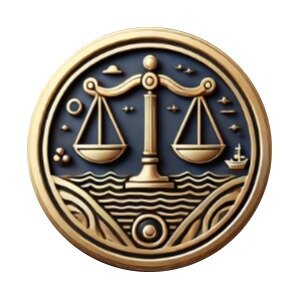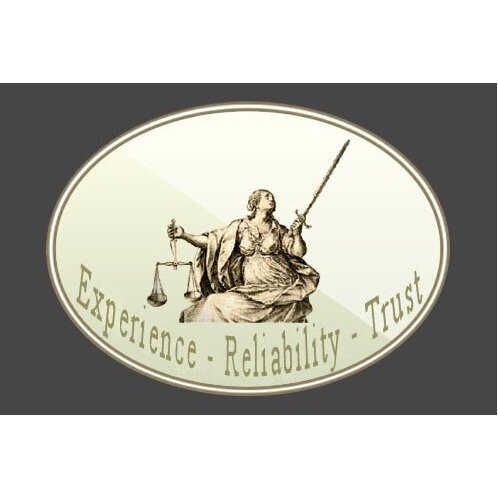Best Mining Law Lawyers in Pattaya
Share your needs with us, get contacted by law firms.
Free. Takes 2 min.
List of the best lawyers in Pattaya, Thailand
About Mining Law in Pattaya, Thailand
Mining Law in Pattaya, Thailand is governed by a combination of national legislation, local rules, and administrative procedures. The principal law is the Minerals Act (B.E. 2560), which regulates the exploration, extraction, processing, and export of all minerals, including sand and rock used in construction. In addition, regional and environmental regulations intended to protect Pattaya’s unique coastal and urban landscape significantly impact mining activities. The area has seen steady demand for minerals, especially as Pattaya develops its infrastructure and construction sectors, making adherence to Mining Law important for both individuals and businesses.
Why You May Need a Lawyer
Engaging a qualified lawyer experienced in Mining Law is crucial for a variety of situations. You may need legal assistance if you are seeking to obtain a mining license or permit, are facing administrative penalties or criminal charges for unlicensed operations, or want to acquire, lease, or sell mining land. Lawyers can help ensure environmental compliance, resolve land disputes, handle issues related to mining rights, and represent you in negotiations with government bodies or third parties. Legal guidance is especially important given the complex application process and strict regulations governing mining activities in Pattaya.
Local Laws Overview
Mining activities in Pattaya are primarily regulated by the national Minerals Act and overseen by the Department of Primary Industries and Mines. Local regulations from Chonburi Province and Pattaya City may impose additional restrictions, notably in areas close to residential zones, wildlife reserves, or the coast. Key legal requirements include the need for exploration and extraction licenses, environmental impact assessments for larger projects, and rehabilitation plans for mined land. There are strict penalties for illegal mining, including fines and imprisonment. Additionally, specific laws protect certain types of minerals, and mining in or near protected areas may be outright prohibited or heavily restricted.
Frequently Asked Questions
What permits or licenses do I need to start a mining operation in Pattaya?
You need to obtain a mining license from the Department of Primary Industries and Mines. Depending on the scale and mineral type, you may also need exploration permits, land use approvals, and environmental clearances.
Can foreigners or foreign companies obtain mining rights in Pattaya?
Foreign individuals or entities face restrictions under Thai law. Generally, only companies incorporated in Thailand with majority local ownership are eligible to apply for mineral rights.
Are there environmental regulations specific to mining in Pattaya?
Yes, mining operations must comply with national and local environmental laws, including conducting environmental impact assessments for certain projects and adhering to measures aimed at preventing pollution and rehabilitating mined areas.
What minerals are commonly mined in Pattaya?
Commonly mined minerals in the Pattaya area include sand, gravel, and construction aggregates. There are fewer operations for precious metals or industrial minerals due to the region's geology and land use priorities.
What are the penalties for illegal mining in Pattaya?
Penalties can include substantial fines, confiscation of equipment, suspension of mining rights, and imprisonment. Offenders may also be liable for damages and environmental rehabilitation costs.
How are land disputes over mining areas resolved?
Land disputes are typically resolved through negotiation. If unsuccessful, cases may proceed to administrative or civil courts, where having a lawyer experienced in Mining Law is recommended.
Is an Environmental Impact Assessment required for all mining projects?
Not all projects require a full Environmental Impact Assessment. The requirement depends on the size, location, and potential environmental risk of the proposed operation. Local authorities or the Department of Primary Industries and Mines will determine the necessity.
Can existing mining licenses be transferred or sold?
Mining licenses may be transferred under certain circumstances, subject to approval from the regulatory authorities. The new holder must meet all legal requirements.
What local authorities oversee mining activities in Pattaya?
The Department of Primary Industries and Mines, Chonburi Provincial officers, Pattaya City administration, and relevant environmental agencies all oversee various regulatory aspects of mining activities in the area.
What steps should I take if I am accused of illegal mining?
Consult a lawyer immediately. It is important to respond promptly to any official accusations, preserve all documentation and permits, and cooperate with investigations while ensuring your legal rights are protected.
Additional Resources
For more information or assistance regarding Mining Law in Pattaya, consider reaching out to the Department of Primary Industries and Mines - Chonburi Provincial Office. The Pattaya City Administration’s environmental and land management divisions can also provide guidance. The Lawyers Council of Thailand and local university law clinics may offer initial advice or referrals to reputable mining law specialists. Consulting the website or office of the Ministry of Natural Resources and Environment is recommended if your issue involves environmental compliance or rehabilitation obligations.
Next Steps
If you believe you need legal assistance regarding Mining Law in Pattaya, start by gathering all relevant documents, such as permits, correspondence with authorities, and records of your activities. Research and contact qualified local lawyers or law firms experienced in Mining Law. Arrange an initial consultation to discuss your situation and obtain professional opinion on your options. Be prepared to explain your objectives and share information openly so your lawyer can provide effective guidance. Continuing to stay informed about both national and local regulations can also help minimize risks related to your mining activities.
Lawzana helps you find the best lawyers and law firms in Pattaya through a curated and pre-screened list of qualified legal professionals. Our platform offers rankings and detailed profiles of attorneys and law firms, allowing you to compare based on practice areas, including Mining Law, experience, and client feedback.
Each profile includes a description of the firm's areas of practice, client reviews, team members and partners, year of establishment, spoken languages, office locations, contact information, social media presence, and any published articles or resources. Most firms on our platform speak English and are experienced in both local and international legal matters.
Get a quote from top-rated law firms in Pattaya, Thailand — quickly, securely, and without unnecessary hassle.
Disclaimer:
The information provided on this page is for general informational purposes only and does not constitute legal advice. While we strive to ensure the accuracy and relevance of the content, legal information may change over time, and interpretations of the law can vary. You should always consult with a qualified legal professional for advice specific to your situation.
We disclaim all liability for actions taken or not taken based on the content of this page. If you believe any information is incorrect or outdated, please contact us, and we will review and update it where appropriate.















